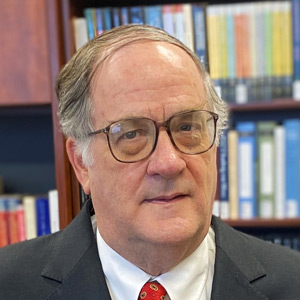Four hours before the September 30 deadline, Gov. Gavin Newsom vetoed Assembly Bill 331—a bill to require that California high-school students complete a course in ethnic studies.
Newsom correctly pointed out that the current ethnic-studies model curriculum is unbalanced and needs revision—as I and others have pointed out. Writing in the Wall Street Journal, I was the first published critic of the 2019 draft of the curriculum. I also provided, again in the Journal, a thoroughgoing criticism of the 2020 draft.
The 2019 draft was interwoven with jargon, bigotry, and revolutionary anti-capitalist propaganda. Newsom himself had condemned that draft and promised it would be “substantially amended.” Linda Darling-Hammond, president of the State Board of Education, said she also thought revision was in order.
Although the 2020 draft toned down the 2019 language, it kept the anti-capitalism and underlying critical racial theory. The 2020 draft continued to neglect the findings of mainstream social science and refused to give ethnic students any understanding of the achievements of minority groups and how others could similarly succeed in America. It further continued to treat ethnic studies classes as training sessions for future identity-politics activists.
The new version explicitly condemned capitalism as oppression. It relied on socialist historian Howard Zinn’s erroneous narrative of American history, citing him 19 times. It mentioned Malcom X twice as often as Martin Luther King, Jr. as well. It recommends that students study the philosophy and growth of the racist and anti-Semitic Nation of Islam. One of the sample classes (on “resistance”) listed cop killer Mumia Abu Jamal’s website as a resource. Jargon was still present: the guiding principles of ethnic studies are said by the document to include a critique of “white supremacy, racism, ... patriarchy, cisheteropatriarchy, capitalism, ableism [and] anthropocentrism.”
The veto happened not only because of this content, but also because of the process for creating the curriculum and the politics associated with it.
When the 2019 version was sent back to the drawing board, there were three main strategies for revision: 1. Fight to keep the 2019 draft as is (the position of the drafters and the radical identity-politics movement; 2. keep the essence of the 2019 draft but tone down the language (State Superintendent Tony Thurmond and his Department of Education); or 3. revise it more deeply and thoroughly (the position held in various forms by Newsom, Darling-Hammond, various ethnic groups, business groups, and social scientists (such as myself and UCLA economist Lee Ohanian).
The California Department of Education tried to follow its toning-down approach. But it was sabotaged from within by the “keep 2019” proponents and from the outside by the identity-politics movement’s well-organized lobby.
This sabotage was most evident in the August 13, 2020, meeting of the state curriculum commission where commissioners directed the Department of Education staff to return in November with a glossary—which in the 2019 draft was replete with critical race theory and jargon—and the deleted 2019 draft’s lessons. Those lessons heralded militant and violent revolutionaries as models for students to study and conceivably emulate.
Various Democratic politicians, including Newsom, had hoped for greater inclusiveness in the 2020 draft, perhaps including Jews and Armenians, who were massacred abroad yet overcame difficulties and discrimination to succeed in America.
Jews and Armenians had lobbied to be included in the 2020 model curriculum, as did Sikhs and Koreans (Koreans, for example, are well-known in the social-science literature for using kinship-based rotating credit associations to start new business enterprises). But this was not to be.
Black Americans, Latinos, certain Asian Americans, and American Indians were the only ethnic groups included in the 2020 curriculum. Radical identity-politics advocates—going back to the rise of contemporary ethnic studies during the 1968 San Francisco State student strike—want to focus on these ethnicities because radicals see them as the most victimized and as potential vanguard participants in future transformational change.
So the 2020 curriculum takes the opposite approach—attacking Jews and the Irish in America, for example, for having succeeded and thereby supposedly having secured white “racial privilege.” Such stigmatization of Jews is in the words of one commentator “tantamount to putting an even larger target on the back of Jewish students.”Here’s the formula for an improved ethnic-studies curriculum: Get rid of the anti-capitalist ideology. Ditch the anti-Semitism, hidden and overt. Make ethnic studies classes a place for learning, not training agitators. Rely on mainstream social science, not anti-white demonization.
Instead of solely dwelling on victimhood, ethnic studies classes should give ethnic minorities evidence that individuals and groups can climb the ladder in America. Such changes would support tolerance and civil rights, improve learning, and increase interracial understanding.








